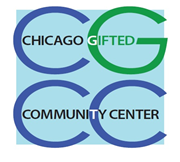From the William & Mary School of Education web site . . .
What is the 2e at William & Mary Conference?
The 2e @ W&M: Twice Exceptional Conference focuses on twice-exceptional (high-ability/gifted with learning differences/disabilities or neurodiverse) children at home and school. The conference aims to provide information, resources, support, and community building opportunities to educators, administrators, parents, practitioners, counselors, and district personnel.
When is the conference?
This time, the 2e at W&M Conference is online February 24-25, 2023. The 2021 and 2022 conferences were also online and are available for purchase below.
2023 Registration Information
- Full Conference: $200
- Full Conference Early Bird: $175 (until Jan. 9th)
- Parent Only Sessions: $100
- W&M Students: $30
- Division Access (up to 15 participants): $2,000
See the conference web site for details on schedule, presenters, and registration.
